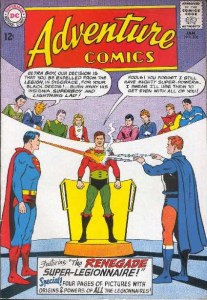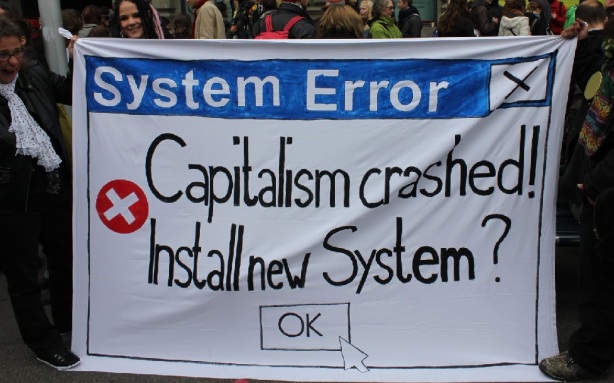
Thursday, June 20, 2013 11:31 PM –I was just watching Brokaw being interviewed by Stewart’s summer stand-in, John Oliver, and they touched on the subject of ‘speed’. Speed has always been an important economic factor, used in business projections, rates of manufacture, etc. When I first saw an office, speed was measured in words-typed-per-minute on an IBM Selectric. The Selectric and the even more fantastic Selectric II, were thrumming Omphalos in the city’s flow of memos, contracts, orders, invoices, et alia that were carried to and fro, up and down the town by an army of delivery-messengers.

There is a period of time that must pass, as the spoken words of an executive, taken down by a secretary as dictation (using Gregg shorthand, mostly) to be typed (with carbon copy) and handed to a receptionist—where it was picked up by the afore-summoned messenger, walked across town, delivered to another’s receptionist, who then opens it and brings it in to the opposite executive of this trans-communication, whatever it may be. This period of time is often called lag time.
And life, back then, had plenty of lag time—at least, as compared with today. Take phone calls, for example—if I were expecting an important phone call (and this may seem counter-intuitive to our young ‘text’-zombies) I had to stay off of the phone. If someone else called during that time I had to say, “I’m waiting for an important call—I have to hang up—I’ll call you back later!” Plus, I had to remain in or near the room with ‘the phone’ in it. Two phones? Don’t be ridiculous—that would be like owning three TV sets!

Anyhow, so there I’d be, stuck in that one room or area, hoping no one else called me while the ‘important caller’ was trying to reach me. But when it rang, I had to answer the phone to find out who was calling. And if I forgot to ask for the callback number, I would never again be able to reach that person—unless they called me again, later on. The other alternative was to look up the person in a gigantic book that listed everybody, alphabetically by last name! That was the world of telephones in the 1950s, -60s, & -70s.

Star-six-nine finally allowed people to return missed phone calls, and now there are only blocked-numbers that can’t be gotten back to. But many people don’t pick up ‘blocked’ numbers—such callers are usually telemarketers and survey-takers, or worse yet, bill collectors—so, to a certain degree, the ball has been put in even their courts, when it comes to ‘reaching out’ to people.
But the telephone is just an example—messengers would be replaced by fax machines, which would be replaced (by and large) by the mighty email. The adding machine would become an antique practically overnight, as would pads of light green ‘ledger paper’, No.2 pencils, and even the poor, little newcomer, White-Out—a truly remarkable invention that allowed an IBM Selectric to be correctable—just a few years before the mighty Selectrics themselves were consigned to history.

Even in the 1980s & -90s there was lag-time in the minicomputers—they took their sweet time sorting files, displaying words on screen, and printing took forever. I could start a program running on one terminal and start a printing program on another, and I could sit back while they did these jobs at an unbelievably slow pace. I would wander into other people’s offices and see if anyone else was having a problem with the computer—which they frequently were. And I felt like I really had a handle on that whole ‘sys-admin’ thing. Then the PCs came, and by the late eighties, the screen displays were screamingly scrolling, faster than the eye could follow; the ink-jet printers were changing the printing game from characters-per-second to pages-per-minute; and the Intel Processors were sorting and querying in moments rather than hours.

Suddenly, I had no free time, no lag-time, and no wait-time. The problem with that is people need to have a rhythm in their labors. They need to cycle through effort and relaxation, effort and relaxation. We didn’t need to be aware of it before because life was once a slower, more hands-on process. Optical cable makes business capable of being a literally light-speed process—and corporations, which have displayed an almost Cruella-DeVille-like, over-the-top misanthropy lately, seem to think that its employees should try to keep pace with the digital comms. This is patently madness.

We share the blame—we have welcomed digital speed into our lifestyles in the areas of DVRs, VODs, sports broadcasting, news reporting, music downloads, weather and traffic updates, catalog-shopping (under its new name, e-commerce) and filing tax returns. We ask the car-voice what our GPS coordinates are every few minutes—imagine the hours spent in woods or the open sea, back when latitude and longitude were calculated by hand. And let us not overlook the Massively Multi-Player Online Gaming industry, and its many satellites.

We talk about a ‘paperless’ office—but most of the paper has already been done away with. Before the Internet, a book was always required. If you knew nothing about a subject, you looked it up in the encyclopedia, or the dictionary. If you needed to navigate, you needed a chart and an almanac, a tide chart, trigonometry tables—you needed paper to do the things we do inside our PCs, I-phones, and GPS-es today. The aforementioned phone books were massive—and only updated once a year—but that was tons of paper every year, tons thrown out, and new tons printed—just like newspapers (remember newspapers?) If you worked in architecture or construction, you needed Moody’s Guide to materials and market prices to calculate a building bid. If you needed auto parts, you had to look them up in the auto parts handbook, which printed the part number of every part, for every year model, of every vehicle. No trade was without its own unique reference works—and the Reference section of a library was not-for-borrowing, because these histories and guides and tables and listings were vital to everyone—but only to look up something—which is why it was OK not to lend them out.

So we feel the pull of the light-speed undertow (if you will) just as strongly as the corporations’ top-management—but only as far as the technology promotes obsessive-compulsive behavior. Corporations must begin to consider the necessity of humane treatment of employees, highest to lowest, one and all.

Galaxy ARP274
Back in the day, the issue of coffee in the office was debatable—until someone publicized a study that showed an increase in productivity in office-workers who were allowed to drink coffee while they worked. From that day on, there were no limits to coffee, as far as top management was concerned. Years later, another study showed that the cost of providing free coffee to employees was much higher than any increase in productivity could ever pay for—and the party was over. Coffee remained permissible, but strictly BYOC. This period also saw the birth of a new industry—gourmet coffee-terias such as Starbucks, etc. This was where the top execs had their coffee fetched from—and such ‘coffee-havens’ eventually gathered a huge following of neurotic laptop-users, as their online access went from onboard-modem to bluetooth hot-spots, thus making any shop into an Internet-café.

There have been a lot of very drastic, very sudden changes in the developed world—and the rest of the world. We’ve seen things change so completely that many people are feeling overwhelmed by it. The ability to remain consistently solvent requires a greater and greater struggle. The ability to fight back against the tides of corporate lobbying, fundamentalism, and economically-based social hierarchies is hard to summon up—particularly after a hard day of being screwed over by the Man, on unpaid overtime, no less.

Suicides are way up in the armed services, I’m sad to say. Most Americans are raised to be civil, caring people in a modern-day world that encourages self-awareness and morality. You take that teenager, stick a rifle in his hands, and ship him (or her) halfway round the world to shoot at enemies who stand in the midst of their innocent civilians—which gets pretty darn tricky, as if old school War wasn’t bad enough—and you’re going to see a lot of mental upset. By making our world a better society, we make war that much more offensive to the human consciences of our children. We set them up for Trauma—but what alternative is there, other than ending war?

Suicides among teens are way up, too. But I know why this is. It’s because they see the same world that you and I see, but from the perspective of someone trapped in a low-income region, with low-income region-type schools and low-income region-type economic and artistic opportunities, i.e. none to speak of.

So it seems we have paradoxical results—our modern world is trying to discover medical techniques that may make us eternal—while an increasing number of our children and young adults are choosing to shorten their time in this life. Business is ongoing in its quest for non-stop commerce—while their employees are being ground down by their miserly fear of spreading the wealth, even a little, itty, bit. And, under these conditions, they have the gall to ask for more speed, more intensity.

You can’t ask a math student to solve a trigonometry problem when you haven’t bothered to make time for that student to be taught the six or seven years of preparatory math leading up to ‘trig’. Likewise, you can’t stress the hell out of a grown-up person, and expect that person to always be moving forward. If you don’t already know, let me inform you that an employee who sees him or her-self as moving forward is the best employee to have. They make a connection between their job and their career, perhaps even their dreams—they enjoy it more and they do the job with incredible focus.

Resentful, bitter, anxious—these more common types of employee create faster turnover, they drag down the company’s goodwill, they can even be so sloppy as to cause the business a severe financial blow. And, yes, of course, you can fire them—but it’s really too late by then. These are the kinds of employees who make it their ‘job’ to do as little work as possible. These employees will not get along with each other—and gossip and office politics will consume 95% percent of their attention, eventually.

So corporations might want to consider something they’ve never had to do before—treat their employees to some break-time, or an occasional activity (nothing too pricey, of course—these are corporations we’re talking about). But consider—when talking about job-creation, our leaders of government and industry are always talking about the need to transition to newer, hi-tech-ier jobs, so that people can fill the jobs that aren’t being filled because of lack of qualified applicants. Well, how about some education requirements for modern-day businesses? Oughtn’t they expand their HR departments to include ergonomics, daycare sourcing, and help with health-insurance paperwork? There are plenty of studies showing the cost of these ‘details’, in days of work missed and in decreased productivity, far exceed the cost of helping employees with these ‘tar-pits’ of the single-parent household, and of traditional families as well.

Does America intend to continue on this way? We are ranked lowest in number of paid holidays of any nation, highest in average hours per week, and stingiest in terms of company benefits. The land of the free is now the land of the wage-slave. And, while I can’t help laughing at Groucho Marx’s line, in the Marx Brothers’ first feature, “The Cocoanuts” (1929), when his hotel staff are demanding their wages and he says, “You don’t want to be wage-slaves, do you?—Well, you know what makes a wage-slave, don’tcha—Wages!”, I nonetheless feel that it is a perfect term of description for the average American worker’s job. For 99% of us, ‘freedom is just a dream some of us had’—the conditions of a low-pay, no-benefit, full-time job, never mind more than one job, make impossible any chance to work on something on one’s own time. And that ensures an inability for self-improvement, whether career-wise, scholastic, artistic or what-have-you.

My dad used to have a tool-bench in our cellar—in his leisure time he would make things, like the camping trailer he made for our annual summer camping trips. He had lots of free time—and he worked in an ad agency on Madison Avenue! Check out his modern-day counterpart ad exec—bet the guy or gal hasn’t even the time to answer any of their three cell phones. No one has time for that sort of thing anymore—and it is leaching the culture out of this country like bleach on a tie-dyed T.

Liberal Arts programs are being erased from schools’ budgets like they were insubstantial frills, rather than the heart of our society. We are moving faster, we are de-funding anything that isn’t part of an engineering degree, or law school, or med school, we are working ourselves harder and longer, we are being paid less (if adjusted for COL index) and our bosses decided we weren’t worth the health insurance sometime a decade or two ago. It’s a harder, faster, money-centric, zero-sum game. Not only are we wasting our own lives with all this rushing around, but we are using the frantic pace to excuse the now total disconnect between humanity and capitalism.

We have lost the sense of nonsense that should present when we say things like, “We can’t afford to make industries stop their polluting of the air and water.” And now we are expected to swallow this whopper: “Sometimes, even with both parents holding multiple jobs, they still can’t make ends meet.” Say what now? When will this madness end?

Like this:
Like Loading...











































































































































































































































































































































































